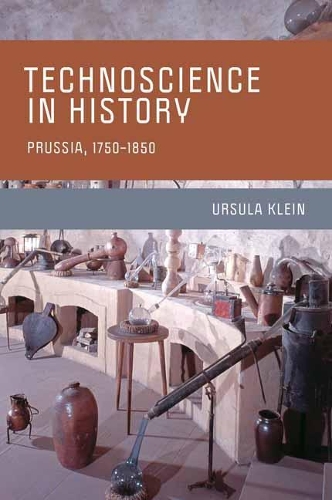
Technoscience in History
(Paperback)
Publishing Details
Technoscience in History
By (Author) Ursula Klein
MIT Press Ltd
MIT Press
17th November 2020
United States
Classifications
Professional and Scholarly
Non Fiction
609.4309033
Physical Properties
Paperback
328
Width 152mm, Height 229mm
Description
The relationship of the current technosciences and the older engineering sciences, examined through the history of the "useful" sciences in Prussia. The relationship of the current technosciences and the older engineering sciences, examined through the history of the "useful" sciences in Prussia.Do today's technoscientific disciplines-including materials science, genetic engineering, nanotechnology, and robotics-signal a radical departure from traditional science In Technoscience in History, Ursula Klein argues that these novel disciplines and projects are not an "epochal break," but are part of a history that can be traced back to German "useful" sciences and beyond. Klein's account traces a deeper history of technoscience, mapping the relationship between today's cutting-edge disciplines and the development of the useful and technological sciences in Prussia from 1750 to 1850. Klein shows that institutions that coupled natural-scientific and technological inquiry existed well before the twentieth century. Focusing on the science of mining, technical chemistry, the science of forestry, and the science of building (later known as civil engineering), she examines the emergence of practitioners who were recognized as men of science as well as inventive technologists-key figures that she calls "scientific-technological experts." Klein describes the Prussian state's recruitment of experts for technical projects and manufacturing, including land surveys, the apothecary trade, and porcelain production; state-directed mining, mining science, and mining academies; the history and epistemology of useful science; and the founding of Prussian scientific institutions in the nineteenth century, including the University of Berlin, the Academy of Building, the Technical Deputation, and the Industrial Institute.
Reviews
"The term 'technoscience' may feel futuristic, but Ursula Klein's fascinating study shows that the phenomenon extends back centuries. She demonstrates in detail that mining, among other key fields, involved the kind of 'useful knowledge' that spurred modern science." Michael D. Gordin, Rosengarten Professor of Modern and Contemporary History, Princeton University
"Technoscience in History imaginatively explores the role of useful sciences in Prussias knowledge economy. It recasts several canonical historical narratives: of industrialization, state expertise, and even Berlin Universitys founding. It adds incredible historical depth to Bruno Latours Science in Action." Kathryn Olesko, Associate Professor, George Washington University
Author Bio
Ursula Klein is Permanent Senior Researcher at the Max Planck Institute for the History of Science in Berlin and coauthor of Materials in Eighteenth-Century Science- A Historical Ontology (MIT Press).
